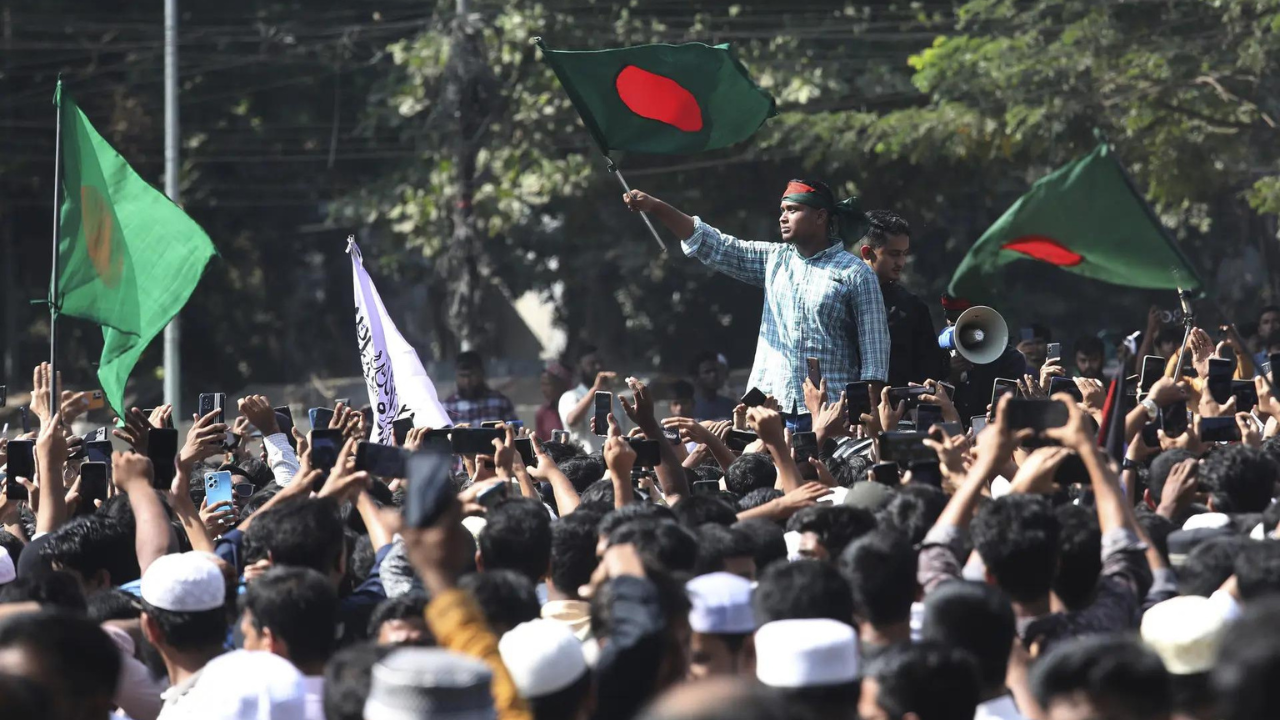ARTICLE AD BOX
The Israeli military said a missile fired from Yemen crossed into central Israel on Sunday, causing no injuries but again adding to regional tensions nearly a year into the Gaza war.
After the incident, AFP photographers saw firefighters putting out a brush fire near Lod, and saw broken glass at a train station in Modin. Both areas are southeast of Tel Aviv, Israel's commercial hub.
Yemen's Huthi rebels did not immediately claim the attack but are among Iran-backed groups around the Middle East that have been drawn into the conflict triggered by the October 7 attack by Hamas Palestinian militants against Israel that triggered war in the Gaza Strip.
In July, the Huthis claimed a drone strike that penetrated Israel's air defences and killed a civilian in Tel Aviv, at least 1,800 kilometres (1,200 miles) from Yemen.
In a statement on Sunday, Israel's military said "a surface-to-surface missile was identified crossing into central Israel from the East and fell in an open area. No injuries were reported."
"The missile was fired from Yemen," it added later.
The military said explosions "heard in the last few minutes" were from air-defence interceptors and the result of the interception was under review.
Yemen's Huthis have been launching attacks against Israel and its perceived interests in what they say is solidarity with Palestinians during the war between Israel and Hamas in the Gaza Strip.
The rebels are part of the "axis of resistance", which also includes Tehran-aligned militant groups in Iraq, Syria and Lebanon.
Deadly shipping attacks
Since November, the Huthis have carried out dozens of missile and drone strikes on shipping in the Gulf of Aden and the Red Sea, waterways vital to global trade.
Several Filipino sailors have been killed in the strikes which have led to American military retaliation against Huthi targets.
Huthi missiles last month hit a Greek-flagged tanker carrying more than a million barrels of crude, leaving it ablaze off the coast of the Yemeni port of Hodeida and threatening environmental disaster.
A Greek defence ministry source on Saturday told AFP that a salvage operation was underway and the Sounion vessel was being towed northward under military escort.
After the Huthis' deadly July attack on Tel Aviv, Israeli warplanes bombed Huthi-controlled Hodeida in response, destroying much of the facility's fuel storage capacity and killing several people, according to the rebels.
It was Israel's first claimed strike in Yemen.
A rebel official vowed at the time to "meet escalation with escalation". A Huthi statement last month affirmed "once again that the Yemeni response is definitely coming".
On Israel's northern flank, Lebanon's Hezbollah movement has been trading regular cross-border fire with Israeli forces in exchanges that threaten to spiral into all-out war.
On Sunday morning about 40 projectiles were fired from Lebanon toward Israel's Upper Galilee region and the Golan Heights, Israel's military said.
The hostilities have displaced tens of thousands of people in both countries from their homes near the border.
Israelis protest
Hezbollah number two Naim Qassem warned in a speech Saturday that "if Israel does unleash a war, we will face up to it -- and there will be large losses on both sides".
"If they think such a war would allow the 100,000 displaced people to return home... we issue this warning: prepare to deal with hundreds of thousands more displaced."
The cross-border violence since early October has killed 623 people in Lebanon, mostly fighters but also including at least 142 civilians, according to an AFP tally.
On the Israeli side, including in the Golan Heights, authorities have announced the deaths of at least 24 soldiers and 26 civilians.
Hezbollah has said it is acting in support of its ally Hamas in the Gaza Strip.
The Hamas attack which began Gaza's war resulted in the deaths of 1,205 people, mostly civilians, according to an AFP tally based on Israeli official figures.
Militants also seized 251 captives during the attack, 97 of whom are still held in Gaza, including 33 the Israeli military says are dead.
Israel's retaliatory military campaign has killed at least 41,182 people in Gaza, according to the Hamas-run territory's health ministry, which does not provide breakdowns of civilian and militant deaths.
On Saturday thousands of people once more took to the streets of Israel's main cities in a bid to increase pressure on the government to reach a hostage release deal.
Months of effort by Qatari, Egyptian and US mediators have failed to secure a truce and hostage release deal. Prime Minister Benjamin Netanyahu's government is facing rising anger from critics who accuse him of not doing enough to get the captives home.
(Except for the headline, this story has not been edited by NDTV staff and is published from a syndicated feed.)
.png)
 2 months ago
1
2 months ago
1








 English (US)
English (US)